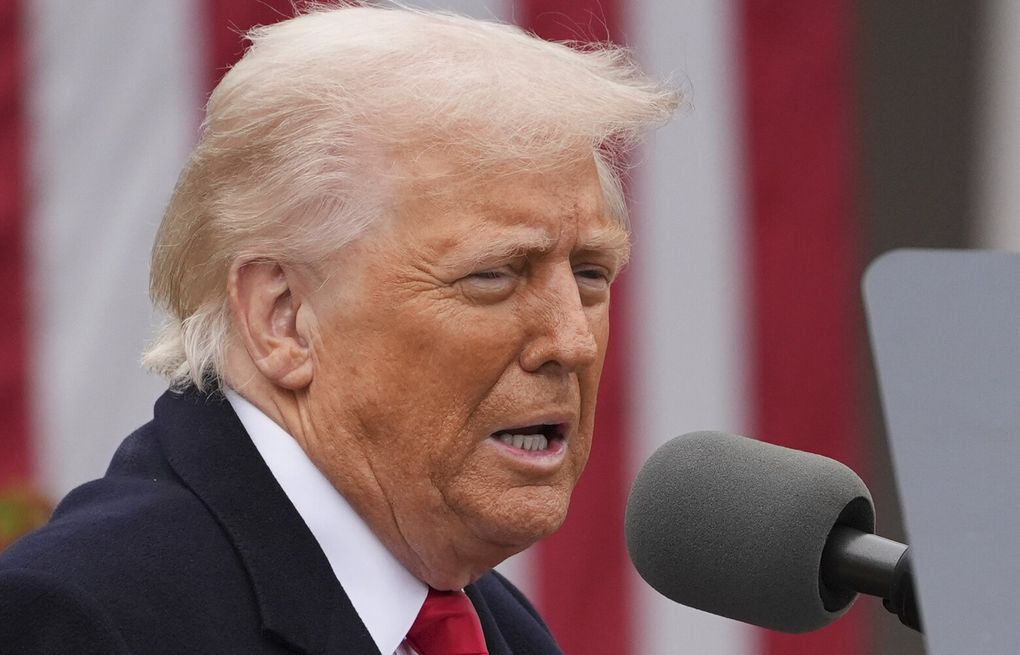
Global Concerns Rise Over US Reciprocal Tariffs Impacting Many Nations
Recent developments in international trade have stirred a whirlwind of concern across the globe as the United States imposes new reciprocal tariffs on a multitude of nations. These measures have not only disrupted existing trade partnerships but have also ushered in a sense of economic uncertainty worldwide. Understanding the broader implications and the nuanced reactions from different countries is crucial in navigating this complex and evolving situation.
Understanding the US's Approach to Reciprocal Tariffs
Reciprocal tariffs are emerging as a critical tool in the US's trade strategy. By implementing these tariffs, the US aims to address what it perceives as unfair trade practices by its partners. The concept revolves around imposing duties equivalent to those faced by American exporters in foreign markets, ostensibly to level the playing field. However, it's a move that's met with cautious scrutiny on the global stage.
While some experts view this as a bold attempt to rectify imbalances, others raise concerns about potential retaliatory measures. The economic interconnectedness of today's world implies that any change in trade policies in a major economy like the US can have extensive ripple effects. The new tariffs are seen as a double-edged sword, offering potential benefits for the US industry while posing challenges for international relations.
Global Reactions to the Tariff Changes
Mixed Reactions from Major Economies
The announcement of reciprocal tariffs has prompted a myriad of reactions among the world's largest economies. China, being one of the most significant trade partners for the US, has expressed concerns about these measures leading to a potential trade standoff. The emphasis from China has been on diplomatic negotiations to mitigate adverse effects on global trade.
The European Union (EU), another major player in international trade, has taken a more cautious stance. While acknowledging the US’s grievances, the EU advocates for multilateral dialogue to address trade imbalances rather than unilateral actions. The EU’s approach underscores the importance of maintaining open lines of communication to prevent escalation.
Developing Nations Face Growing Challenges
For many developing nations, the introduction of these tariffs is perceived as an additional hurdle in an already challenging economic environment. Countries heavily reliant on exports to the US are experiencing increased pressure to diversify their trade portfolios. The Association of Southeast Asian Nations (ASEAN), for instance, has called for increased regional cooperation to counterbalance the effects of US tariffs.
123.1 Research Insights: A Looming Threat to Economic Growth
Economic experts have raised alarms over the long-term implications of this tariff strategy on global economic growth. The fear of an impending trade war looms large, with predictions of its stifling impact on international markets. The tariffs are expected to lead to price increases for consumers and disruptions in the supply chain, affecting industries ranging from technology to agriculture.
The World Trade Organization (WTO) has issued statements highlighting the potential for such measures to derail progress made in global trade cooperation. The importance of finding amicable solutions to trade disputes is emphasized to ensure sustained economic growth worldwide.
Sectoral Impact: Winners and Losers
Technology Industry: A Fragile Balance
The technology sector is notably affected by these trade shifts. With supply chains intricately woven across borders, the imposition of tariffs introduces additional layers of complexity. US tech companies, reliant on foreign components and markets, are bracing for increased costs and disrupted operations. This necessitates strategic adjustments in sourcing and partnerships to mitigate negative impacts.
Agricultural Sector: Navigating a New Terrain
In contrast, some sectors such as agriculture may experience mixed results. While tariffs could offer US farmers a competitive edge in domestic markets, the potential for retaliatory tariffs by affected countries could adversely impact exports. This highlights the delicate balance between protectionist strategies and maintaining international market access for American produce.
Strategic Responses and Policy Alternatives
Diplomatic Engagements and International Negotiations
In response to these challenges, diplomatic avenues have gained prominence on the global agenda. Countries affected by US tariffs are increasingly seeking bilateral agreements and trade partnerships to offset the adverse impacts. These negotiations emphasize compromise and the mutual benefits of open trade.
Emphasizing Domestic Resilience and Innovation
To navigate the new normal, nations are encouraged to strengthen their domestic industries and foster innovation. Investment in technology and infrastructure is seen as pivotal in creating resilient economies capable of withstanding external shocks. Moreover, enhancing competitiveness on a global scale requires nurturing human capital and entrepreneurial initiatives.
Moving Forward: A Call for Global Cooperation
As the world grapples with the implications of the US's reciprocal tariffs, the call for global cooperation becomes more pronounced. The need for a balanced approach that addresses trade imbalances while fostering international partnerships is critical. While protectionist measures may offer short-term benefits, the long-term health of the global economy hinges on collaborative efforts and effective dialogue.
Innovation and adaptation are key drivers in this evolving landscape. As countries, businesses, and individuals adjust to these changes, the importance of strategic foresight in policy-making cannot be underestimated. Ultimately, the goal remains to build a global trade environment that is fair, sustainable, and conducive to shared prosperity.


